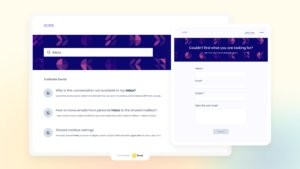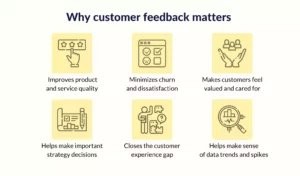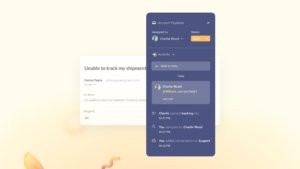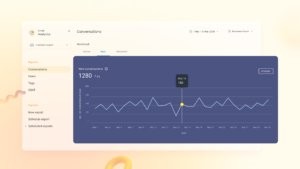"We see our customers as invited guests to a party, and we are the hosts. It’s our job every day to make every important aspect of the customer experience a little bit better." – Jeff Bezos, CEO and founder, Amazon.
This quote perfectly encapsulates our philosophy at obd2reader.store. In today’s competitive landscape, simply offering great products isn’t enough. Excellent customer care is the cornerstone of lasting success. While price remains a consideration for consumers, the quality of customer service has emerged as a critical differentiator.
Consider this: a recent Hiver survey revealed that a staggering 72% of customers will abandon a brand after just one negative experience. Furthermore, over half (52%) expect their issues to be resolved within 24 hours. These statistics underscore a clear message: customers demand seamless, memorable, and efficient experiences. To meet these elevated expectations, businesses must strategically invest in the right technologies – specifically, Good Customer Care Tools. These tools empower support teams to operate more efficiently, work smarter, and ultimately cultivate exceptional experiences for every customer.
Deliver Multi-Channel Support Without Leaving GmailTry Hiver Free
This article will explore ten essential customer care tools that can transform your business. We’ll delve into each tool, explaining its purpose, benefits, and how it contributes to enhanced customer care and business value.
Table of Contents
Understanding Customer Support Tools
What exactly constitutes a customer support tool? In essence, it’s any technology designed to help customer-facing teams manage, organize, and respond to customer inquiries, complaints, and requests promptly and effectively.
Customer support tools become indispensable as businesses grow. An expanding customer base naturally leads to a surge in support interactions. To manage this increased volume without compromising service quality, businesses need robust tools and streamlined processes.
The right tools not only alleviate the burden on your support staff but also simplify the process for customers seeking assistance. This article will cover a comprehensive range of solutions, from email helpdesks and live chat platforms to knowledge base systems, providing a holistic view of the customer care technology landscape.
10 Must-Have Customer Care Tools for Business Growth
We’ve done extensive research to bring you this curated list of top-tier tools, categorized for easy understanding:
| Tool Category | Description | Examples |
|---|---|---|
| Help Desk Ticketing System | Centralizes, organizes, and tracks customer inquiries from various channels. | Hiver, Zoho Desk, Zendesk |
| Knowledge Base Software | Enables customer self-service through FAQs, tutorials, and guides. | Hiver, ProProfs, Helpjuice |
| Live Chat Software | Facilitates instant, real-time communication for enhanced engagement. | Hiver, Pure Chat, ThriveDesk, ProProfsChat, LiveChat |
| Social Listening & Monitoring Tool | Tracks brand mentions and customer sentiment across social media. | Hootsuite, Sprout Social |
| Customer Feedback Survey Tool | Collects valuable feedback using metrics like NPS, CSAT, and CES. | SurveyMonkey, Typeform |
| Internal Communication Software | Streamlines team communication for faster query resolution. | Slack, Microsoft Teams, Hiver’s Email Notes |
| Project Management Tool | Organizes tasks and workflows across support channels for efficiency. | ClickUp, ClientVenue, Asana, Timely Time Tracker |
| Reporting Dashboard | Provides data-driven insights into customer support performance. | Hiver’s Reporting and Analytics, Qualtrics, Databox |
| Customer Relationship Management (CRM) Software | Centralizes customer data and interaction history for personalized service. | HubSpot, Salesforce |
| AI Email Management Software | Intelligent email sorting and prioritization for efficient response. | Intercom, Sanebox |
1. Help Desk Ticketing System
Is your business grappling with customer messages scattered across multiple channels like email, live chat, social media, and phone? A help desk ticketing system offers a centralized solution to this challenge. It consolidates all customer interactions into a single platform, enabling you to effectively manage, assign, and track every query.
A help desk ticketing system is a cornerstone of good customer care tools. It allows support teams to log and manage support tickets systematically, streamline workflows, automate ticket routing to the appropriate agents, and foster collaboration. By optimizing these processes, businesses can significantly reduce response times and deliver exceptional customer service. For example, implementing a dedicated customer service email management software can dramatically improve email handling efficiency by organizing and prioritizing incoming messages.
Popular help desk software options include industry leaders like Zendesk and Zoho Desk, as well as user-friendly alternatives like Hiver. Hiver stands out for its seamless integration with Gmail, allowing support teams to leverage a familiar interface and avoid the learning curve associated with new software. Its ease of setup makes it an accessible and powerful tool for businesses of all sizes.
2. Knowledge Base Software
In today’s digital age, customers are increasingly self-reliant and prefer to find answers independently. The phrase “just Google it” reflects this prevalent behavior. In fact, research from the Harvard Business Review indicates that a significant 81% of customers across various industries attempt to resolve issues themselves before reaching out to a live representative.
By investing in knowledge base software, businesses can provide valuable self-service resources directly to their customers. A knowledge base acts as a central repository for FAQs, how-to guides, video tutorials, and step-by-step instructions. This empowers customers to find solutions at their own pace, leading to increased customer satisfaction and reduced strain on support teams. One of the primary benefits of a well-maintained knowledge base is the substantial reduction in support workload, as customers can often resolve common issues independently.
Furthermore, support agents themselves can leverage the knowledge base as a quick reference tool when addressing frequently asked questions. This significantly accelerates response times, as agents don’t need to research solutions from scratch for every common inquiry.
When considering knowledge base options, Hiver, ProProfs, and Helpjuice are highly recommended platforms known for their robust features and user-friendly interfaces. These tools make it easy to create, manage, and deploy comprehensive knowledge bases that contribute significantly to good customer care.
3. Live Chat Software
Live chat software has become an indispensable tool for businesses committed to providing exceptional customer care. Its real-time nature and immediacy offer a significant advantage in today’s fast-paced customer service landscape.
According to Invesp, customers who engage with businesses via live chat tend to spend 60% more per purchase compared to those who don’t. Moreover, a striking 77% of customers may abandon a purchase altogether if live chat support is not available. These statistics highlight the profound impact of live chat on both customer satisfaction and revenue generation.
Live chat software enables instant communication with customers directly on your website or mobile app. This allows you to offer immediate, proactive support, address concerns in real-time, and guide customers through their journey seamlessly. Live chat facilitates personalized interactions, building rapport and trust with customers.
However, it’s crucial to implement live chat effectively. A poorly executed live chat experience can be detrimental, potentially damaging customer perception more than the absence of live chat itself. To ensure success, businesses should adhere to best practices for live chat implementation, focusing on responsiveness, knowledgeable agents, and a user-friendly interface.
Popular live chat software providers include Hiver, Pure Chat, ThriveDesk, ProProfsChat, and LiveChat, each offering a range of features to suit diverse business needs and enhance good customer care initiatives.
4. Social Listening and Monitoring Tools
In today’s interconnected world, social media platforms serve as vital channels for customer feedback and brand perception. Are you actively monitoring online conversations about your brand? Do you have a clear understanding of how customers perceive your products and services on social media?
Social listening and monitoring tools are essential for tracking brand sentiment and understanding the voice of your customer. These tools empower businesses to closely observe what customers are saying about their brand and their competitors across various social media platforms. The insights gleaned from social listening can be invaluable for tailoring customer experiences and proactively addressing concerns. By monitoring brand mentions, businesses can identify customer complaints swiftly and respond promptly, preventing isolated issues from escalating into widespread negative feedback and safeguarding brand reputation.
For effective social listening and monitoring, Hootsuite and Sprout Social are highly recommended platforms. They offer comprehensive features for tracking brand mentions, analyzing sentiment, and engaging with customers on social media, contributing significantly to a proactive and customer-centric approach to good customer care.
5. Customer Feedback Survey Tools
Surveys, a time-tested method for gathering information, remain one of the most valuable tools for collecting direct customer feedback. Understanding your customers’ perspectives is paramount to business success, influencing decisions ranging from product development to technology investments, including choosing a tech stack. Deploying customer feedback surveys to gauge customer sentiment about your products, services, and support interactions provides actionable insights for continuous improvement.
Soliciting and acting upon customer feedback is highly beneficial for businesses of all sizes. These insights can reveal areas for improvement in product design, service delivery, and overall customer experience.
Customer feedback surveys typically incorporate questions designed to measure specific customer experience metrics. Key customer experience metrics include Net Promoter Score (NPS), Customer Satisfaction (CSAT) Score, and Customer Effort Score (CES). These metrics provide quantifiable data on customer loyalty, satisfaction, and the ease of doing business with your company.
SurveyMonkey and Typeform are widely used and highly effective tools for creating and distributing customer feedback surveys. These platforms offer user-friendly interfaces and robust features for designing, deploying, and analyzing surveys, making them essential components of a good customer care toolkit.
6. Internal Communication Software
Effective customer care often necessitates seamless collaboration and communication within support teams and across different departments. Customer support agents frequently need to consult with colleagues or other internal teams to resolve complex queries or access specialized information. This underscores the importance of equipping support teams with user-friendly internal communication tools, potentially complemented by screen recording capabilities for clearer communication.
The advantage of dedicated internal communication software is that it facilitates quick, contextual discussions among team members, both within the support team and with colleagues in other departments. This eliminates communication silos and streamlines the process of gathering information and resolving customer issues efficiently.
Hiver’s Email Notes, for example, allows agents to add internal notes directly to customer email threads. This enables seamless collaboration and knowledge sharing without resorting to lengthy email chains. This feature significantly reduces email clutter and improves the speed and efficiency of internal communication.
Other popular internal communication platforms include Slack, Microsoft Teams, and Fellow.app. These tools provide various features like instant messaging, channels for topic-based discussions, and file sharing, all contributing to enhanced team collaboration and good customer care.
7. Project Management Tools
Delivering exceptional customer service often involves managing multiple projects and tasks concurrently. Customer service teams are frequently involved in various initiatives, from implementing new support processes to managing ongoing customer communication campaigns. This necessitates the use of project management tools to organize, prioritize, and track the progress of tasks across different customer communication channels.
In essence, project management tools provide 360-degree visibility into ongoing support activities. They facilitate the sharing of important documents, collaboration with stakeholders involved in resolving customer queries, and tracking individual tasks and deadlines. By providing structure and organization, project management tools empower support teams to deliver consistently excellent support, even when managing complex workloads.
Top-rated project management tools include ClickUp, ClientVenue, Asana, and Timely Time Tracker. These platforms offer features like task assignment, progress tracking, deadlines, and collaborative workspaces, all contributing to enhanced team efficiency and good customer care.
A customer service management template by ClickUp
Pro tip: If your team utilizes Asana, consider leveraging Hiver’s Asana integration to manage and track projects directly within Gmail, further streamlining workflows and enhancing productivity.
8. Reporting Dashboards
To effectively assess and improve the quality of customer support, businesses need data-driven insights into key performance indicators. Reporting dashboards provide interactive visualizations of critical metrics, offering detailed insights into support team performance and its impact on broader business outcomes like customer loyalty and retention.
Robust and in-depth analytics are essential for understanding customer support performance comprehensively. Interactive dashboards allow businesses to segment and analyze data in various ways, enabling a thorough and nuanced understanding of support operations.
Vacasa, a global vacation rental management company, exemplifies the power of reporting dashboards. By implementing Hiver’s analytics dashboard, Vacasa significantly improved its support operations, achieving an impressive 80% faster handling of support emails. This case study demonstrates the tangible benefits of data-driven insights in optimizing customer care processes.
Other recommended tools for data analysis and customer service reporting include Qualtrics and Databox. These platforms offer advanced analytics capabilities and customizable dashboards, empowering businesses to monitor and improve their good customer care initiatives.
Did You know: The Customer Service Software Market is projected to reach USD 58.1 Billion by 2030, according to Acumen Research and Consulting, highlighting the growing importance of these tools in the business world.
9. Customer Relationship Management (CRM) Software
Customer Relationship Management (CRM) software is designed to streamline customer interactions and data management across various business functions. For customer support teams, CRMs serve as central hubs for storing customer information, logging interactions, and tracking support issues throughout their lifecycle.
A CRM provides a unified database that allows multiple team members to access crucial customer details, including past orders, communication history, and ongoing support requests. This centralized access to customer data enhances personalization and ensures consistency in customer interactions. By making customer data readily accessible to all relevant team members, CRMs break down data silos and facilitate informed decision-making.
The benefits of CRM extend beyond data management and accessibility. Investing in a CRM can have a significant impact on key business metrics like customer retention, with studies showing potential increases of up to 27%. By fostering stronger customer relationships and providing personalized experiences, CRMs contribute directly to improved customer loyalty and long-term business success.
Popular CRM platforms include industry leaders like Salesforce and HubSpot. For businesses operating in the B2B space, specialized prospecting tools like TinyEmail can also be valuable additions to their customer care technology stack. Choosing the right CRM is a critical step in building a foundation for good customer care.
10. AI Email Management Tools
Artificial intelligence (AI) is transforming various aspects of business operations, and customer service is no exception. AI-powered email management tools leverage machine learning to streamline email handling, improve efficiency, and enhance the overall customer experience.
AI email management tools utilize artificial intelligence to intelligently sort, prioritize, and even assist in responding to emails. These tools can automate tasks like categorizing emails, identifying urgent requests, and suggesting appropriate responses. By automating routine email management tasks, AI frees up support agents to focus on more complex and nuanced customer interactions. Furthermore, AI-powered tools can learn from user behavior over time, becoming increasingly effective at predicting user preferences and needs, further enhancing efficiency and personalization.
Sanebox is a prominent example of AI email management software, known for its intelligent email filtering and prioritization capabilities. Intercom is another popular platform that incorporates powerful AI features to enhance customer communication and support workflows.
Recommended Read: 8 Best AI Email Management Tools in 2025
Empowering Your Teams for Success with Customer Care Tools
Implementing a strategic mix of these essential customer care tools is crucial for equipping your teams for success. Whether it’s a help desk system to streamline customer requests or a customer feedback tool to gather valuable insights, the ultimate objective remains consistent: to delight customers and create memorable experiences. In parallel with optimizing customer interactions, selecting appropriate board management software is equally vital for ensuring efficient decision-making and robust governance within your organization, particularly in today’s dynamic business environment.
If your business operates within the Google Workspace ecosystem and seeks a customer service solution tailored to your needs, Hiver offers a compelling option.
Hiver, recognized as the world’s first help desk designed specifically for Google Workspace, empowers numerous global brands to deliver fast and human-centric customer service directly from their familiar Gmail inboxes. Furthermore, Hiver provides integrated analytics, live chat, CSAT surveys, collaboration features, and automation functionalities, offering a comprehensive suite of tools within a single platform.
Interested in exploring how Hiver can transform your customer care operations? Start your free 7-day trial of Hiver today and discover the power of integrated customer service within Google Workspace!
FAQs
- How does a help desk ticketing system enhance customer service teams’ efficiency?
- Help desk ticketing systems centralize, assign, and track customer queries from various channels. They streamline support workflows, automate ticket routing, and facilitate team collaboration, leading to reduced response times and improved customer service.
- Why is Hiver recommended as a help desk software in this article?
- Hiver is recommended for its user-friendly interface, rapid setup within Gmail, and comprehensive features designed to optimize customer query handling and team efficiency.
- What role does knowledge base software play in customer support, and what tools are recommended?
- Knowledge base software empowers customer self-service by providing FAQs, tutorials, and guides, reducing the workload on support teams. Recommended tools include Hiver, ProProfs, and Helpjuice.
- Why is live chat software considered a vital customer care tool?
- Live chat software enables real-time communication, leading to increased customer engagement and higher purchase values. Customers also highly value the availability of live chat support. Examples include Hiver, Pure Chat, ThriveDesk, ProProfsChat, and LiveChat.
- How do social listening and monitoring tools contribute to enhanced customer care?
- Social listening and monitoring tools help track brand sentiment and customer feedback on social media, enabling businesses to personalize experiences and respond swiftly to customer concerns. Hootsuite and Sprout Social are recommended tools.
- What is the importance of customer feedback surveys, and which tools are suggested for implementation?
- Customer feedback surveys are crucial for gathering insights into product and service quality. SurveyMonkey and Typeform are recommended tools for creating and deploying customer feedback surveys.
- How does internal communication software, like Hiver’s Email Notes, improve customer support efficiency?
- Internal communication software facilitates quick and contextual discussions within support teams, minimizing reliance on email and reducing communication clutter. Hiver’s Email Notes is highlighted as a tool for seamless team collaboration.
- Why is a project management tool emphasized for customer support teams?
- Project management tools help organize, prioritize, and track tasks across different communication channels, providing comprehensive visibility into team activities and improving overall efficiency. Recommended tools include ClickUp, ClientVenue, Asana, and Timely Time Tracker.
- What role does a reporting dashboard serve in customer care, and which tools are recommended for creating reports?
- Reporting dashboards offer interactive insights into customer support metrics, enabling data-driven analysis and performance improvement. Recommended tools for customer service reporting include Hiver’s Reporting and Analytics, Qualtrics, and Databox.
- How does Customer Relationship Management (CRM) software contribute to effective customer care, and which CRMs are mentioned?
- CRM software centralizes customer data, interaction history, and support issues, enhancing data accessibility and personalization. HubSpot and Salesforce are cited as leading CRM examples.
- What makes Hiver a unique customer service tool for Google Workspace users?
- Hiver is uniquely designed for Google Workspace, enabling fast and human customer service directly within Gmail, with integrated features like analytics, live chat, CSAT surveys, collaboration, and automation.
- How can businesses explore Hiver, and what is the offer mentioned in the article?
- Businesses can explore Hiver through a free 7-day trial. The article encourages readers to experience Hiver’s capabilities for delivering fast and efficient customer service directly from Gmail.





